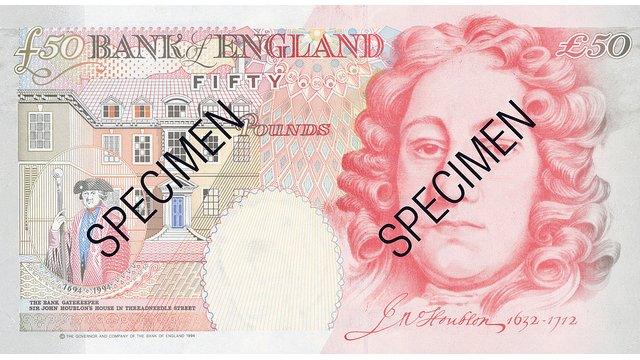Paper banknotes disappearing fast as £20 turns plastic
- Published
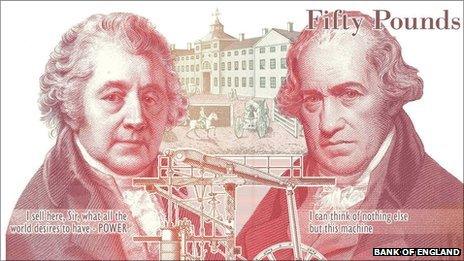
The £50 banknote featuring Boulton and Watt entered circulation in 2011
Anyone lucky enough to have a £50 note in their wallet or purse will find it is the only banknote made of paper in a few years.
The Bank of England has announced that the next design of the £20 note will be plastic.
The new £20 note, entering circulation in 2020, will follow the polymer £5 and £10 notes.
Consumers will be able to get their hands on the new plastic £5 note, the first in the polymer series, from 2016.
This will feature the image of Sir Winston Churchill.
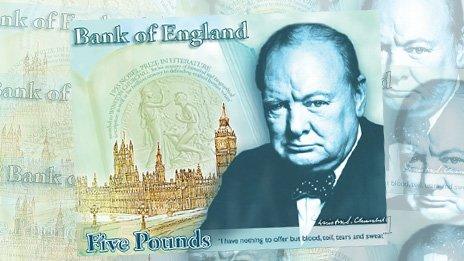
The £5 note featuring Winston Churchill will be the first plastic banknote
The Bank argues that the polymer notes stay cleaner and are more secure than cotton paper notes, which have been used for more than 100 years.
The £5 polymer note will enter circulation in the autumn of 2016, followed by the Jane Austen plastic £10 note a year later.
The Bank said that the decision for the £20 note to also be made from polymer came after "extensive research into the developments in security features".
On a more practical level for many consumers, it will also survive a spin in the washing machine.

Popular works by Barbara Hepworth have made her a contender to feature on the new £20 note
A bank committee is considering which character will appear on the new £20 note. It received 29,701 nominations from the public after it announced it wanted to celebrate an artist on the note. Some 592 eligible visual artists, external are being considered for the honour.
The final decision will be made by the Bank's governor, Mark Carney. Favourites include the sculptor and artist Barbara Hepworth, the author Beatrix Potter and fashion designer Alexander McQueen.
Whoever wins will replace the economist Adam Smith on the current £20 note.
The next £50 could also be made of plastic, but it will be some time before that decision is made. The latest version of the note, featuring Matthew Boulton and James Watt, only entered circulation in November 2011.
Clydesdale Bank in Scotland has issued a limited number of polymer notes. In 1999, Northern Bank of Northern Ireland issued a polymer £5 commemorative note celebrating the year 2000. A plastic note was introduced in the Isle of Man in 1983 but was withdrawn in 1988 owing to problems with the ink.
- Published18 December 2013
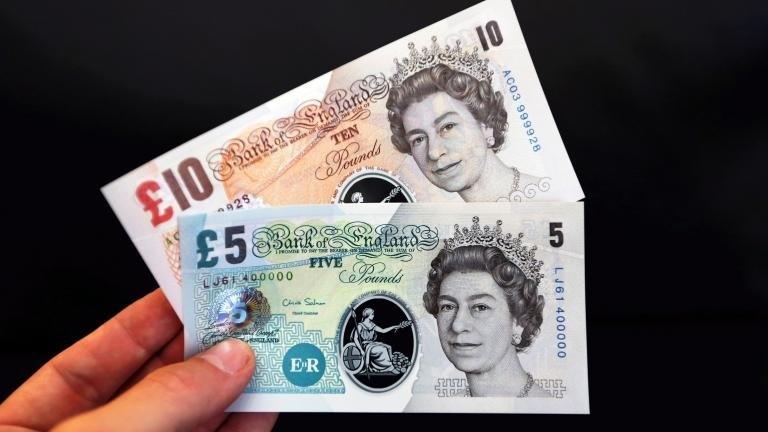
- Published20 July 2015
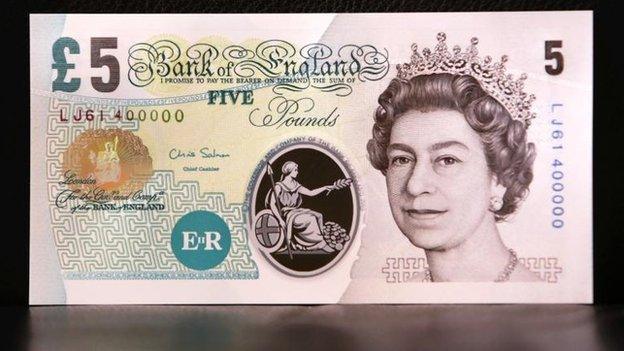
- Published16 January 2014
